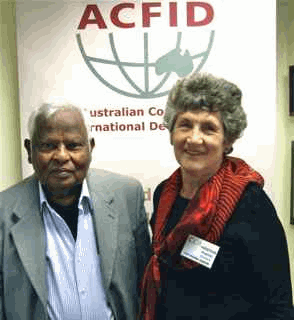 Torture, detention and rape are being used to control society in our near-neighbour countries, a Director of the Asian Human Rights Commission said in Australia recently. He called on Asian Australians to speak up about abuses of human rights in their ‘home countries’.
Torture, detention and rape are being used to control society in our near-neighbour countries, a Director of the Asian Human Rights Commission said in Australia recently. He called on Asian Australians to speak up about abuses of human rights in their ‘home countries’.
‘Endemic abuses are used to control society’
Torture, detention and rape are used as instruments of political and social control – to reduce or solve these injustices, we need better information on the varied political realities of the countries in which they are endemic.
This was the central message given to a group of representatives of human rights organisations by Basil Fernando, Director of Policy and Program Development of the Asian Human Rights Commission on 2 July 2012 at the Australian Council for International Development in Canberra.
The Asian Human Rights Commission (AHRC) was founded in 1986 by a prominent group of jurists and human rights activists in Asia. It is an independent, non-governmental body, which seeks to promote greater awareness and realisation of human rights in the Asian region, and to mobilise Asian and international public opinion to obtain relief and redress for the victims of human rights violations.
Mr Fernando stressed the need to promote appropriate legal and administrative reforms, particularly in judicial and police practices. When torture is part of the system, and no adequate judicial system exists to address abuses of human rights, systemic change is needed.
Based in Hong Kong, and employing country specific nationals, the Asian Human Rights Commission covers 12 SE Asian Countries. Fernando described the situation in Sri Lanka, where a three-decade civil war was bloodily concluded in May 2009. The rule of law did not apply to the Tamils and provides them with no protection, despite statutes which supposedly do. The President under Article 35.1 is above the law, holding supreme power.
Fernando saw most positive situations for human rights in Hong Kong and in South Korea, with Indonesia making progress. China has improved as compared to a decade ago, though Tibet is firmly under military control. Cambodia’s war crimes tribunals have little impact on current practices. In Pakistan, the Supreme Court has played a significant role in asserting human rights.
Fernando urged Australian NGOs to encourage Asians in Australia to join in working towards better implementation of human rights principles in their countries of origin.
– Dr Kristine Klugman OAM, President, Civil Liberties Australia

